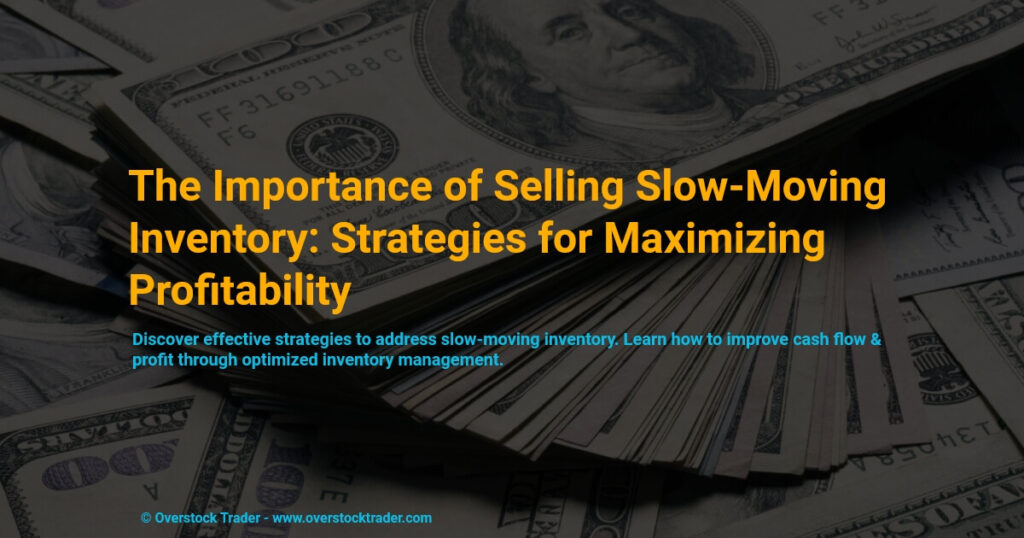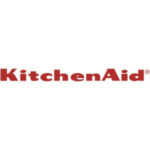
Inventory Liquidation Service
Overstock Trader is a leading inventory liquidation company that helps businesses get maximum value for their unwanted stock, surplus, and excess inventory. With a large network of inventory liquidation buyers and over a decade in the excess inventory liquidation space, we help our clients get top dollar for their inventory by navigating some of the toughest questions.
- When is the right time to liquidate my inventory?
- How do I sell my excess Inventory without devaluing my brand?
- How do I navigate the discount retail industry?
- How do I determine the value of excess inventory?

Inventory Liquidation Management as a Service
- When is the right time to liquidate my inventory?
- How do I sell my excess Inventory without devaluing my brand?
- How do I navigate the discount retail industry?
- How do I determine the value of excess inventory?
Top Inventory Liquidation Buyers to Get Maximum Value For Your Surplus Stock
Navigating the complex and intricate landscape of the discount inventory market is quite different from the more traditional distribution channels. The discount retail industry operates behind the scenes, and for good reason, companies want their unsold inventory to disappear without compromising their current distribution and pricing strategy. It is important to have a trustworthy and reliable partner with extensive connections to inventory liquidation buyers and an innate understanding of navigating even the most intricate inventory challenges.
At our core, we are inventory liquidators, equipped with a wealth of inventory liquidation strategies to get our clients the highest recoup value for their inventory. We have the expertise to help you navigate the complex world of excess inventory liquidation. Whether you need to get rid of overstock, liquidate excess or obsolete inventory, or manage customer returns, we have the solutions you’re looking for.
Our Proven Inventory Liquidation Process
Selling excess inventory is not just about completing a transaction; it involves transforming inventory management into a strategic process.
By aligning the management of excess inventory with your sales strategy, your buyers and discount channels become part of a cohesive sales plan. The key to achieving this is implementing a well-aligned inventory liquidation process that complements your strategy, rather than engaging in a chaotic rush to offload products hastily.
Liquidate Excess Inventory With Our Global Network
We have a vast global network of inventory liquidation buyers that we leverage to help you liquidate your inventory in the most advantageous way. Our inventory liquidation services can help you with a custom strategy that fits your needs, whether it be bulk sales, discrete sales channels, or other methods to liquidate your inventory immediately. Our complete end-to-end service allows your team to focus on current sales endeavors, while we streamline the clearance of your inventory.
If you’re looking to free up warehouse space, our team can help you discreetly liquidate your products. We aim to provide you with the most effective way to liquidate surplus inventory, maximizing your returns and minimizing term storage fees.
Don’t let excess inventory bog you down. Contact us now to explore the many ways you can liquidate your excess inventory and optimize your liquidation process.
Types of Surplus inventory liquidation Buyers We Partner With
Why Liquidate Inventory with Overstock Trader?
The implications of excess inventory are far-reaching and often underestimated. Beyond the visible costs lie hidden expenses that can diminish profitability. The following are the common implications of surplus inventory and why working with inventory liquidation buyers is beneficial.
Financial Costs
These encompass a wide range of expenses incurred while keeping inventory in your possession. These include warehousing expenses, insurance, security measures, climate control, and utilities. It’s not just the physical space that costs money; it’s also the necessary infrastructure to maintain and protect your inventory.
Strategic Costs
Excess inventory make a business less agile and responsive to market changes. It can limit the company’s ability to quickly adapt to shifting customer preferences or emerging trends. All businesses have a fixed amount of capital and warehouse space, so if too much is taken up by inventory that is not selling well, that leaves fewer options to acquire better products.
Employee Costs
Employees tasked with managing and selling excess inventory may become frustrated and unmotivated. It often creates tension and finger pointing within the organization of tasking an impossible job of selling inventory your customers may not be interested in. It affects morale and potentially leads to turnover.
Customer Costs
When customers encounter the same products over and over again, they stop returning. The introduction of new and exciting products that entice customers to return. Failing to introduce new products means missing out on opportunities to cater to changing customer preferences, emerging trends, and the need for fresh items.
Streamlining Your Inventory Liquidation Process
If you have any surplus stock that you need to get rid of, including excess inventory or overstock inventory that you want to dispose of discreetly, we can help you out. At Overstock Trader, we specialize inventory liquation services that help businesses manage their excess merchandise effectively.
If you need to liquidate your merchandise quickly, we are your go-to inventory liquidator partners. Our streamlined inventory liquidation process ensures that your surplus inventory is sold quickly and discreetly, regardless of the amount of excess you have on hand.
Our dedicated team has an extensive network of buyers who can purchase your inventory in bulk, allowing you to clear space and ship the goods without any delay. We work closely with you to determine the value of your products, so that you can maximize your returns.
Want to know the value of your inventory?
What Makes Us Different?
Types Of Inventory Liquidation We Support
And Much More!
Why Choose Overstock Trader?
Expertise and Experience
With years of experience in the industry, we have developed a deep understanding of market dynamics and the intricacies of closeout and liquidation sales.
Global Reach
Our network and marketing strategies ensure that your overstock inventory liquidation reaches a global audience, maximizing exposure and potential inventory liquidation buyers.
Tailored Solutions
We recognize that every manufacturer is unique. Our team works closely with you to create customized retail inventory liquidation services that align with your business goals and market conditions.
End-to-End Service
From strategic planning to sales execution and logistics, we provide a comprehensive suite of services, offering you a hassle-free experience.
Frequently Asked Questions
What is Inventory Liquidation?
Inventory liquidation is a process that involves selling excess or obsolete inventory at heavily discounted prices to free up warehouse space and generate cash flow quickly. Businesses often use this strategy to recover some of their capital tied up in unsold goods. However, effective bulk inventory liquidation requires careful planning to ensure that the returns are maximized while minimizing any negative impact on brand reputation and market value.
How do I determine the value of excess inventory?
The actual worth of excess inventory depends on how much a buyer is willing to pay for it. Therefore, it is essential to sell slow-moving inventory as quickly as possible. The value of inventory decreases with time, so the longer it stays in the warehouse, the less valuable it becomes.
What is the liquidation process for excess inventory, and why do businesses need it?
Liquidation is a discreet way of getting rid of excess inventory without disrupting regular sales channels. The process involves selling surplus or obsolete inventory through liquidation auctions, liquidators, or wholesale liquidation platforms to receive payment and free up warehouse space.
What is the best way to conduct inventory liquidation?
The best way to liquidate inventory is to sell products quickly, often through discounted pricing strategies. To optimize your approach, you can use clearance sales, bundle offers, and online promotions to attract buyers and speed up the selling process. You can also explore effective methods such as partnering with liquidation companies, engaging wholesalers, and leveraging online marketplaces to facilitate efficient surplus inventory liquidation. By incorporating these strategies, you can maximize the value of your inventory liquidation sale and streamline the process of dealing with excess inventory.
What are the benefits of liquidating inventory?
Liquidating inventory can help free up storage space, convert obsolete stock into cash, and avoid losses from depreciation. Furthermore, it allows businesses to recover some capital, maintain a stable cash flow, and potentially establish customer loyalty through discounted sales.
When does selling excess inventory make sense?
If all your customers have passed on the inventory, even at a discounted price, it’s time to consider liquidating the inventory. This is a fast and simple way to generate revenue from the inventory and free up the warehouse space.
What is inventory liquidation management, and why is it essential for businesses?
Inventory liquidation management is the strategic process of efficiently selling surplus goods, often involving discounted pricing and targeted sales strategies. Businesses must optimize their inventory, recover capital, and prevent losses. This approach ensures a streamlined and effective way to handle excess inventory liquidation.
Are there specialized buyers for closeout and discontinued inventory?
Yes, there are specialized buyers for closeout and discontinued inventory. These buyers often include liquidation companies, discount retailers, and online marketplaces that specialize in selling surplus or discontinued goods. They purchase inventory at a lower cost, allowing them to offer discounted prices to consumers and other retailers.
How can businesses benefit from partnering with inventory liquidation companies?
Collaborating with inventory liquidation companies provides businesses with expertise in efficiently handling surplus stock. These companies specialize in inventory liquidation management, offering tailored solutions to clear excess inventory and recover value. By leveraging their services, businesses can navigate the process seamlessly.
Are there inventory liquidation services near me that can assist with surplus stock?
Yes, we are the dependable inventory liquidators that specialize in surplus inventory liquidation. Local inventory liquidation companies can provide personalized solutions, ensuring efficient and localized management of excess inventory. Explore local directories or online platforms to find reputable inventory liquidators nearby in your vicinity.
How does effective inventory liquidation management contribute to overall business efficiency?
Efficient inventory liquidation management contributes to business efficiency by minimizing carrying costs, optimizing cash flow, and creating space for new products. It ensures a proactive approach to handling excess inventory, preventing devaluation and financial losses. Businesses can streamline operations and maintain a healthy balance with strategic inventory management.























